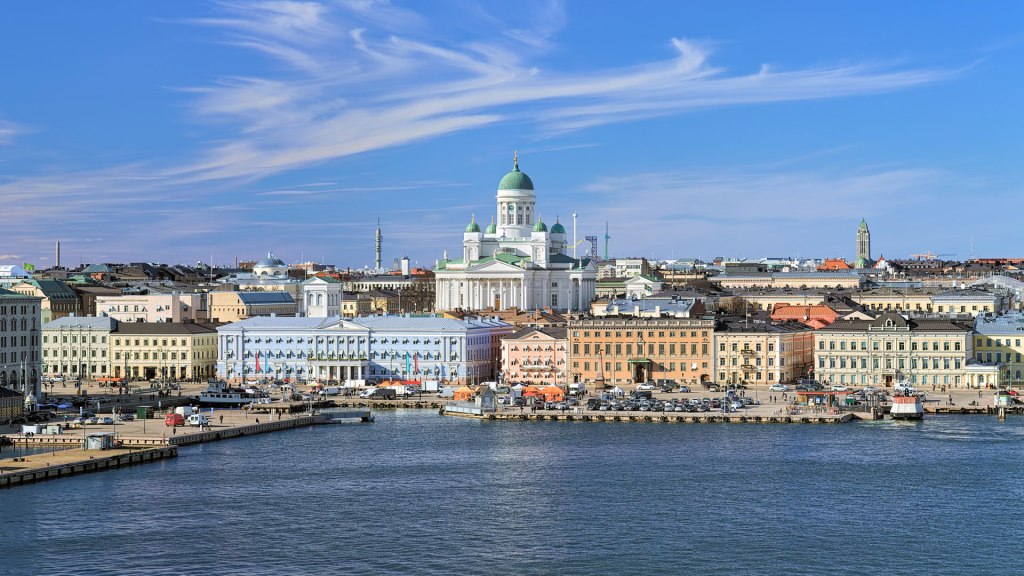“Finland is actually the country that has the social assistance and social security system that is closest to a Universal Basic Income than anywhere else in the world,” said Moisio.
“The experiment is not just about what would happen if we threw away the whole social security experiment and introduce just one basic income.
“That’s not possible in Finland because the law states that you are allowed to do this mandatory experiment as long as the situation for those who are selected does not get worse.
“What we are actually testing here is what will happen if we remove this economic sanction away from the unemployed.
“There has been some criticism about the experiment but I’m very looking forward to seeing the results because they have universal value. How will they behave? Will they just sit at home and play guitar or will they actually try to do some short-term work to top up their basic income?
“At the moment, there are two schools of thought and both think that they are right. One thinks that giving out a basic income will just see a reduction in people working and reduce the lowest wages. And those supporting think that once you remove sanctioning and free people to take risks it will increase their employment and boost entrepreneurship and start small businesses.”
Advertising helps fund Big Issue’s mission to end poverty
The trial may have ended – with results due in early 2019 – but it was already enough to capture the attention of the press and Labour who included the idea in their manifesto last summer.
Free meal for children over the summer months
Finland has led the way in childhood nutrition since World War II, becoming the first country in the world to offer a free school meal for all pupils in 1943 – four years before the UK government put up the cash to do the same.
But when the schools break up and dinners stop, holiday hunger remains a problem with parents on the breadline forced to find another meal every day for their child.
In the capital Helsinki, there has been a simple way to tackle this issue that has been running for 77 years.
Every year between June and August, lunches are served across 65 of Helsinki’s parks for children under the age of 16 free of charge, with the only requirement for kids is to bring their own bowls and cutlery.
That equates to 157,000 servings of food and 2,000kg served every day with soups – including potato and pumpkin, black salsify and traditional Finnish pea soups – and stews the main offering.
Advertising helps fund Big Issue’s mission to end poverty
The longstanding tradition costs around €246,000 (£220,000) per year with each meal costing roughly €1.16 (£1.04) per meal, according to Sanna Vesikansa, Helsinki deputy mayor for social services and health care.
“This, of course, has been discussed politically of whether we should continue to do it,” she said. “During the recession there was a viewpoint that we don’t need it but now I think it is understood that it is a very important universal right especially for those who really need it.
“The cost is not that much but for many it is very important.”
Oodi library
Closing libraries may be all the rage in the UK – 800 plus have gone since 2010 – but the Finns waved goodbye to 2018 with the opening of the €98 million (£88m) Oodi Library.
Dominating the Helsinki skyline, the state-of-the-art building includes a theatre, recording studios and a maker space alongside the books and opened its doors on December 5 on the 101stanniversary of Finnish Independence.
It was built to meet staggering demand – there were more than 50 million visits to Finnish libraries in 2017 with around two million people borrowing books. Out of a country with a population of 5.5 million people, that means that 35 per cent of Finns use libraries with just under 10 visits per person on average. On Oodi’s opening two days alone, there were 55,000 visitors, taking out 12,000 items.
Advertising helps fund Big Issue’s mission to end poverty
In contrast, 33 per cent of people in England have visited a library in the last 12 months across 2017/18, according to the Department of Culture, Media and Sport’s Taking Part Survey. And large-scale investments in libraries in the UK have not gone well – take the largest public library we have, for example, the Library of Birmingham. The £188m opened its doors in 2013 but by the end of 2015 had already run into problems that saw opening hours halved.
No such problems in Finland it seems – as Oodi’s director Ann-Maria Soininvaara says: “It is wonderful that Finland is becoming known worldwide as a pioneer of library services. We may be the only country in the world where people queue to gain entry to a library.”












